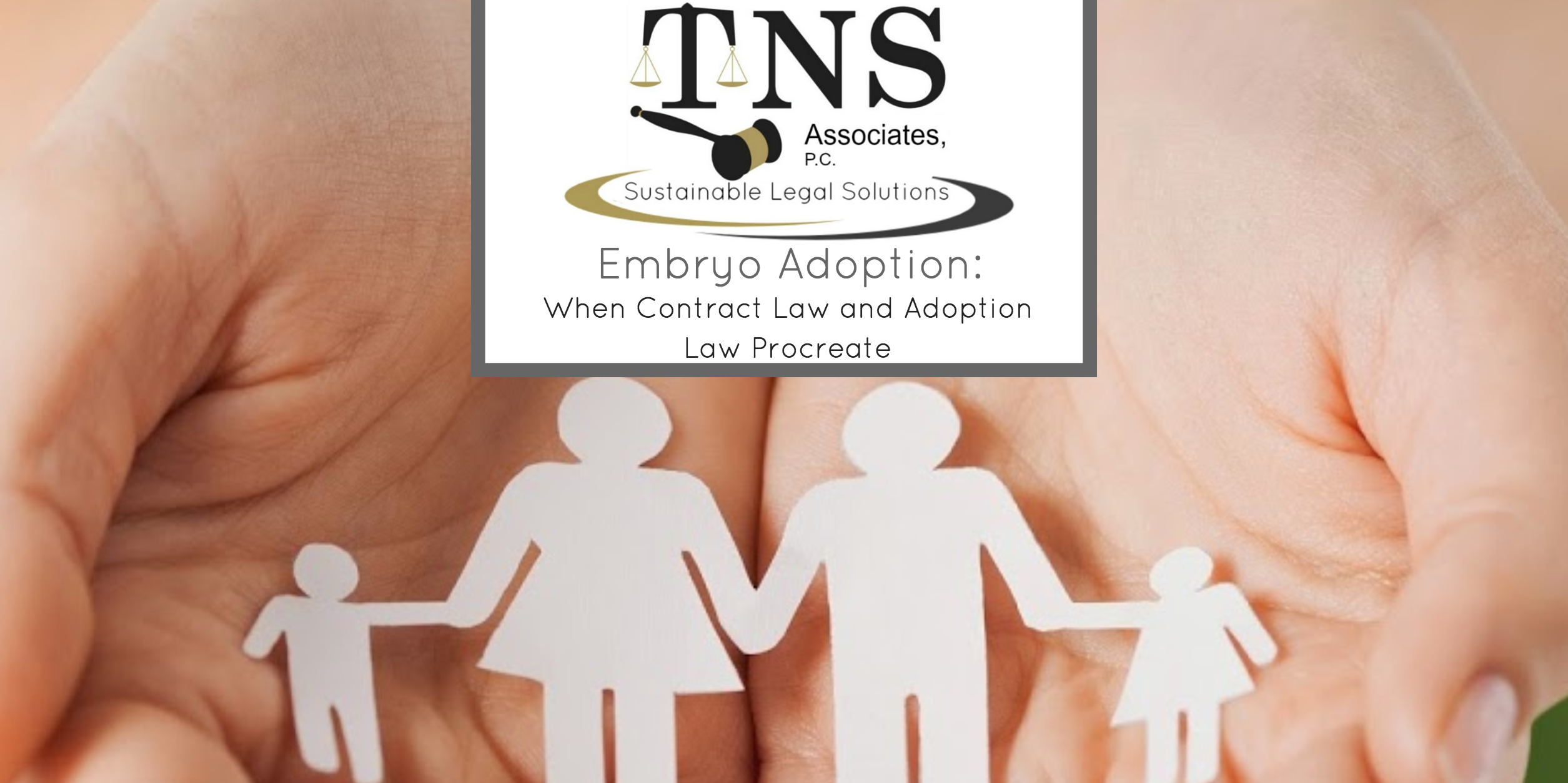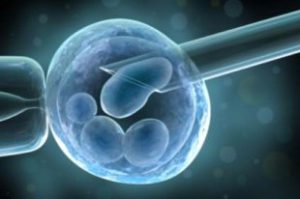Embryo Adoption: When Contract Law and Adoption Law Procreate

With the rise in popularity of in vitro fertilization (IVF) in the last several years, many couples are now facing the question of what to do if they have remaining embryos

after they are done building their family. Embryo adoption is a creative solution for couples who have embryos remaining after IVF, which allows the biological parents of an embryo to donate it to another couple. The adoptive mother is implanted with the embryo, and gives birth to a child that is not biologically related to either her or her husband. Embryo adoption thus creates an additional option, besides fertility treatments or adoption, for couples facing fertility issues. However, the law has not kept pace with scientific advances, leaving uncertainty as to the legal rights of both adoptive and biological parents

Under Colorado law, a mother-child relationship is established between “a child and the natural mother” by proof that she gave birth to the child or by any other proof specified in Article Four of Title 19. C.R.S. § 19-4-104. These “other” forms of proof include genetic tests. See C.R.S. § 19-4-105(1)(f). Thus, an issue arises if a woman gives birth to a child that is not biologically related to her, resulting in both a “birth” mother and a biological mother.
The Colorado Supreme Court has held that biology is not the only factor in determining the identity of a child’s legal father. In re N.A.H., 9 P.3d 354, 362 (Colo. 2000). Colorado’s Court of Appeals has extended this reasoning to competing claims regarding the identity of a child’s mother. In re S.N.V., 284 P.3d 147, 150 (Colo. App. Div. 5 2011). Thus, when two individuals claim to be a child’s mother, the court must analyze the best interests of the child to determine who should be named the child’s legal mother. Id. at 151. This is a highly fact-intensive inquiry, and can create uncertainty regarding the identity of a child’s legal parents.

No court has yet resolved a “custody” dispute between embryo donors and adopters. However, these types of disputes will become more common as the popularity of assisted reproductive technology continues to grow. In 2010, two couples in got into a dispute over the custody of frozen embryos after entering into an embryo adoption agreement.[1] The parties settled the dispute privately, but the story illustrates the perils inherent in these kinds of transactions.[2] Other couples have advertised their embryos for donation on Craigslist.[3] Without laws to guide the parties and the courts on how to conduct these transactions, the enforceability of these types of agreements is uncertain.
Decisions about assisted reproductive technology are made during some of the most vulnerable and emotional times for a couple. Given the legal uncertainties regarding these types of agreement, the need for legal counsel is imperative.

Thank you for taking the time to read this article today.
[1] Cynthia S. Marietta, Frozen Embryo Litigation Spotlights Pressing Questions: What is the Legal Status of an Embryo & Can It Be Adopted?, available at http://www.law.uh.edu/healthlaw/perspectives/2010/marietta-embryolegal.pdf (2010).
[2] Nancy Cambria, Families Settle Dispute Over Frozen Embryos, St. Louis Post-Dispatch, May 14, 2010, http://www.stltoday.com/news/local/metro/families-settle-dispute-over-frozen-embryos/article_824aef94-c15b-5030-94dd-4ba4db82104f.html?mode=story (February 26, 2013).
[3] Krystle Kacner, Unique Donation: Iowa Couple Helps Families, available at http://whotv.com/2012/05/09/unique-donation-iowa-couple-helps-create-families (March 2, 2015).
